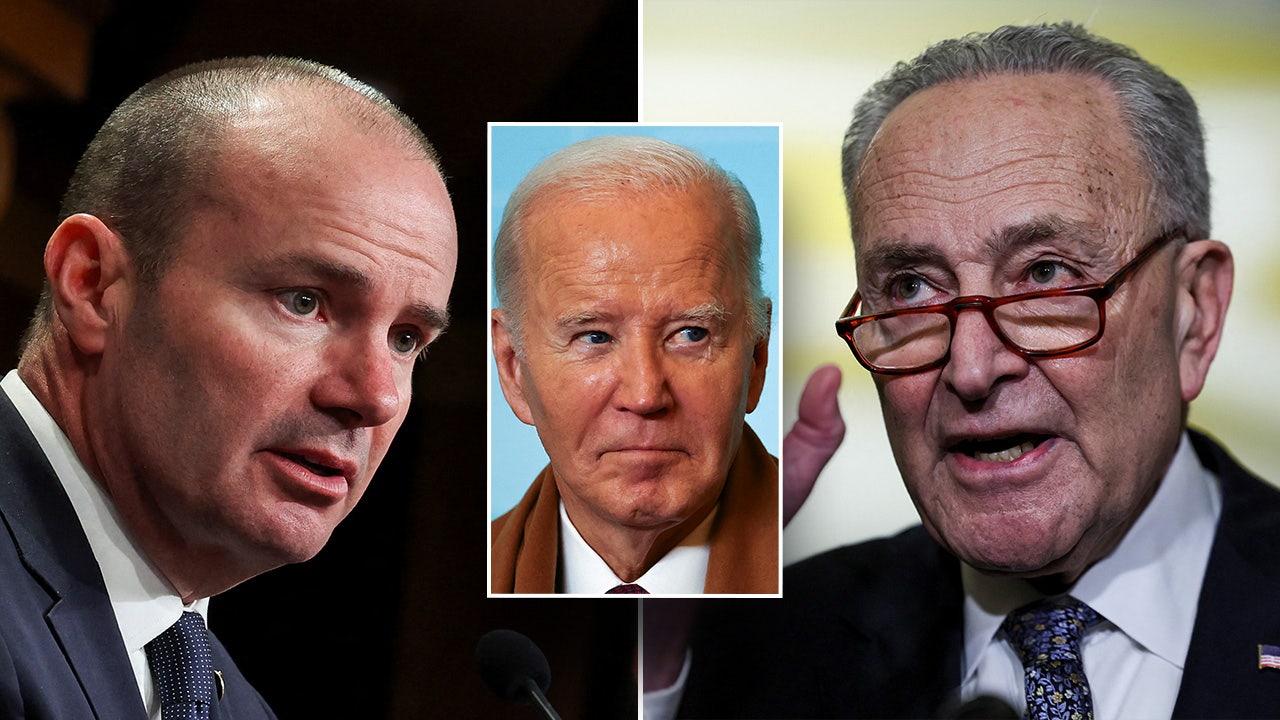Musk and Vivek Ramaswamy promise to inflict even more damage than Project 2025 ever envisioned. Only Congress can stop them
By reshaping the Supreme Court in his first term, President-elect Donald Trump effectively laid the groundwork for a second-term agenda aimed at dismantling the federal government. Now, with his so-called Department of Government Efficiency (DOGE), we’re speeding toward a constitutional crisis, driven by Trump’s impulsive, tweet-like approach to governance.
Trump declared last week that DOGE “will pave the way for my Administration to dismantle Government Bureaucracy, slash excess regulations, cut wasteful expenditures, and restructure Federal Agencies,” adding it could be the “‘Manhattan Project’ of our time.” And the department will be led by Elon Musk — the world’s richest man, who put $119 million into a pro-Trump Super PAC — and Vivek Ramaswamy, a Trump primary opponent-turned MAGA hype man.
The president of the United States has two primary ways to create a government agency: securing Congress’s approval or adhering to established U.S. law. While the Constitution doesn’t explicitly prescribe the creation of administrative agencies, the Supreme Court has affirmed Congress’s vast authority to establish and regulate the federal bureaucracy. Under Article I, Congress has the power to set up new agencies, define their roles, and determine how leaders are appointed. Congress can even override agency actions through new legislation.
The Federal Advisory Committee Act (FACA) allows non-paid advisors to make policy recommendations to Congress and agency heads, but Musk and Ramaswamy’s DOGE defies these established norms. Instead, it emerges as a supercharged version of Project 2025, the Heritage Foundation’s controversial policy and personnel program, targeting the very structure of our government.
DOGE, conceived by Musk and Ramaswamy, proposes extreme measures like cutting $2 trillion from the federal budget and firing 90-95 percent of federal employees. Yet the math simply doesn’t add up. While they boast of running government “like a business,” their analogy falls flat. In the private sector, up to 80 percent of revenue often goes to salaries, but only 3.8 percent, or slightly higher, of the federal budget is used for civilian employee compensation. The majority of this expense — around 60 percent — goes to critical departments like Defense, Veterans Affairs, and Homeland Security, which employ many veterans and disabled workers.
Editor’s picks
Even if every civilian federal employee were fired, saving $271 billion, we’d still be far from their promised $2 trillion. Worse, this would cripple essential services, undermining veterans’ care, national defense, and homeland security. Musk and Ramaswamy’s approach suggests absurd outcomes, like abandoning Social Security and defense spending administration.
Who would run these programs or manage the remaining $5 trillion in mandatory spending? Would funds be divided equally among states? How would critical services be maintained? These unanswered questions highlight the chaos of Trump’s plan.
In a tweet last week, Ramaswamy gave us a glimpse into the disaster by vowing to eliminate programs with “expired authorizations.” The largest to expire include $128 billion for Veterans Affairs and $153 billion for health, education, labor, and pensions. Cutting these funds would hurt veterans and non-veterans alike, especially since veterans make up 30 percent of the federal workforce and have a stake in those pension funds.
Stripping this money from veterans is reprehensible. To get it back, Congress would have to rewrite, pass, and send 17 new bills to the president’s desk, a feat that would take decades in Washington time.
“We expect certain agencies to be deleted outright,” Ramaswamy said in a Fox News interview on Sunday. “We expect mass reductions in force in areas of the federal government that are bloated. We expect massive cuts among federal contractors and others who are overbilling the federal government.” (Musk, of course, is a major beneficiary of government contracts.)
Related Content
Ramaswamy added, “We shouldn’t have 4 million civil servants who can’t be elected or can’t be removed from their positions.”
DOGE isn’t about efficiency. It’s about destruction. Unlike Project 2025, which proposes firing one million federal employees and battling unions in court, Musk and Ramaswamy aim to eliminate the entire workforce, bypassing legality. Their plan would dissolve government functions, betraying even a basic understanding of civics.
As Trump attempts to stack his Cabinet with radicals like Matt Gaetz and Tulsi Gabbard, it’s clear he might privatize essential agencies while cutting others entirely.
The irony? Trump is making it sound like Musk and Ramaswamy are leading a new agency, when in reality, their role would be to dismantle the government — and then fire themselves.
Trending Stories
It’s an age-old conservative dream that now teeters on the brink of becoming reality. Whether Congress will act to stop this impending disaster is one of many questions that will soon be answered.
Michael Embrich is a veteran, former member of the Secretary of Veterans Affairs’ Advisory Committee on the Readjustment of Veterans, and former congressional staffer.

 2 hours ago
1
2 hours ago
1
















.png)

.png)
.png)
.png)













 English (US) ·
English (US) ·  Hindi (IN) ·
Hindi (IN) ·